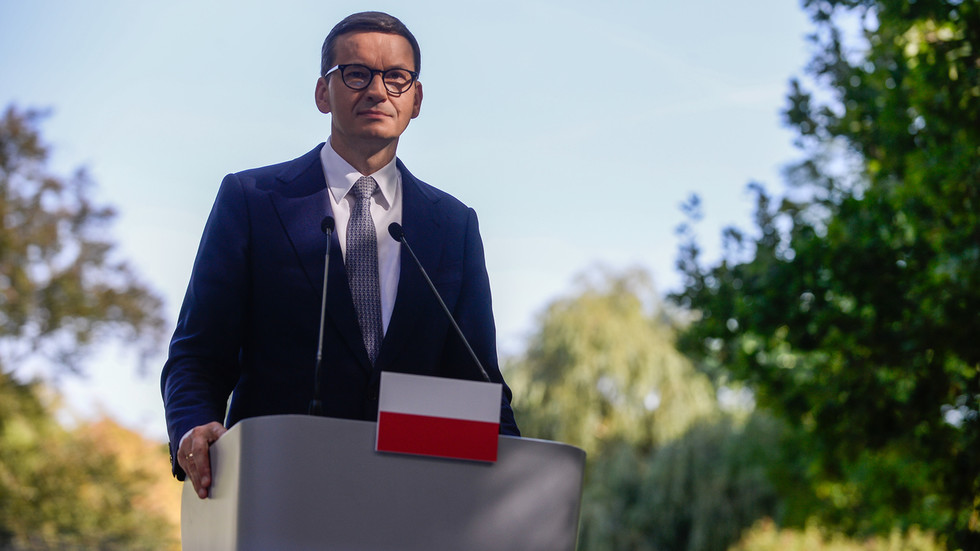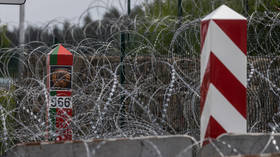
Warsaw’s PM has warned of the dangers of allowing “thousands” of immigrants from the Middle East and Africa across Polish borders

Poland’s Prime Minister, Mateusz Morawiecki and Germany’s Chancellor, Angela Merkel ( not seen) take part in a press conference after bilateral meetings on September 11, 2021 in Warsaw, Poland © Getty Images / Omar Marques/Getty Images
Polish Prime Minister Mateusz Morawiecki said on Sunday that he intends to hold an October referendum in which voters will be asked if they support an influx of illegal immigrants as part of a European Union (EU) migrant relocation proposal.
“Do you support the admission of thousands of illegal immigrants from the Middle East and Africa under the forced relocation mechanism imposed by the European bureaucracy?” Morawiecki asked in a Sunday social media video. The brief clip also featured scenes of burning cars and other forms of violence in Western Europe.
The ruling Law and Justice party leader Jaroslaw Kaczynski adds in the video: “Do you want this to happen in Poland as well? Do you want to cease being the masters of your own country?”

Read more
The anticipated referendum, which is expected to take place in October alongside parliamentary elections, comes after EU interior ministers proposed that member states share the responsibility for housing migrants who enter without adequate authorization. Poland and Hungary were among the nations to object to the plan.
The current asylum system in Europe has been the subject of scrutiny after more than one million gained entry to the bloc – most from Syria – overwhelming processing and housing arrangements in place in countries like Italy and Greece, and sparking a political crisis.
Polish authorities have also accepted around one million Ukrainian refugees who fled their homeland following the onset of Moscow’s military offensive in the country. However, unlike the Ukrainian refugees – who are mostly white and Christian – Polish opponents to excess immigration contend that migrants could threaten the country’s cultural identity.
Poland was generally not considered to be an entry country or a destination for undocumented migrants up until two years ago, when asylum seekers began crossing the border of the EU state from Belarus. Warsaw retaliated by constructing a 186km-long wall on the border, as well as heavily increasing its military presence in the area to about 2,000 soldiers and 5,000 border guards.




